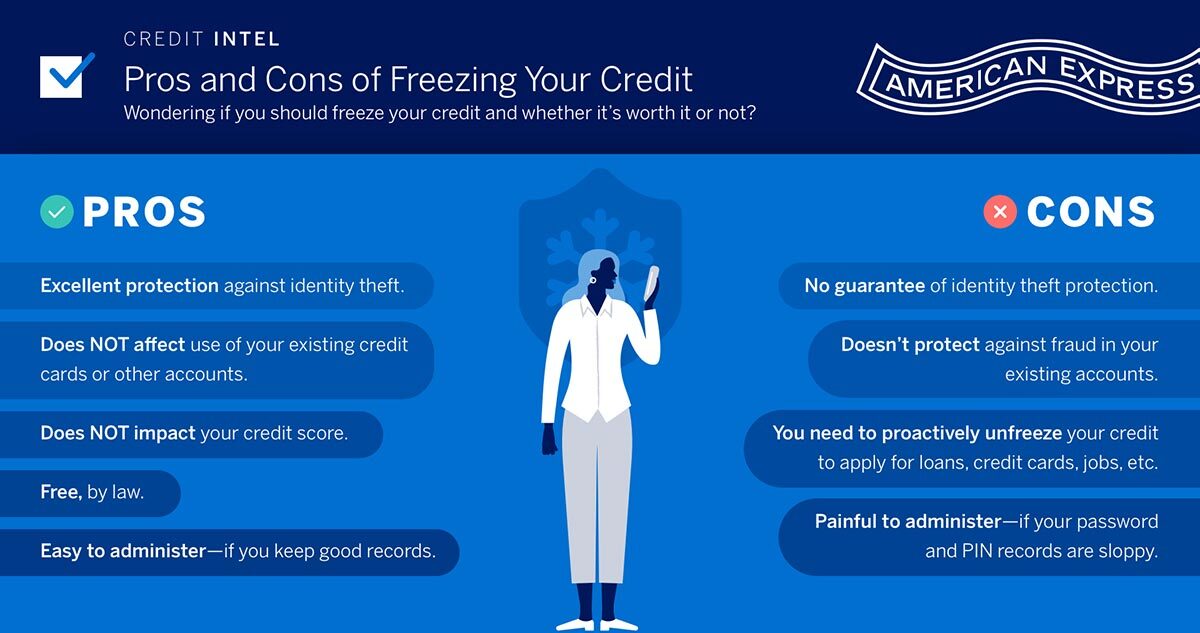What Is a Credit Freeze? Should I Freeze My Credit?
6 Min Read | Last updated: October 31, 2024

Wondering if you should freeze your credit and whether it’s worth it or not? Here is why you may consider freezing your credit.
At-A-Glance
- Many consumer advocates say you should freeze your credit because it’s the best protection against identity theft.
- Credit freezes can be simple and easy to do if you keep good password records, but a major hassle if you don’t.
- Research shows at least one in five Americans have frozen their credit — but many others are confused about credit freezes or haven’t ever heard of them.
Every month, thousands of Americans ask Google, “Should I freeze my credit?” Thousands more wonder, “What is a credit freeze?” I’m not one of them. My credit has been frozen solid since October 2017, roughly six weeks after an Equifax data breach.

What is a Credit Freeze?
What happens when you freeze your credit is simple: no one can access your credit report, including you, until you unfreeze it. More specifically, a “frozen” credit reporting agency is barred from releasing your credit report to anyone except your existing creditors or a government agency with a court order or a search warrant.1
I had acted relatively quickly after the breach to freeze my credit, following a flurry of research that taught me the benefits of a credit freeze, plus:
- The main downsides to freezing credit
- That freezing credit wouldn’t hurt my credit score, and
- Best of all, credit freezes are free, by law, since September 2018.2
Credit Freezes Protect Against the Costs of Identity Theft
Banks, credit card companies, employers, landlords, and others typically may require credit reports before opening a new account, making a job offer, renting out an apartment, etc. So a credit freeze may be an effective way to protect yourself against identity thieves taking out a loan or getting a new credit card in your name. If they do, you might become liable or end up spending a large amount of time proving it wasn’t really you.
Is There a Downside to Freezing Your Credit?
As long as you keep careful, secure records of your passwords and PINs, the downsides of freezing your credit are fairly low. Credit freezes effectively prevent new accounts from being created.
But that does lead to the first of four downsides:
- A credit freeze doesn’t help protect against fraud aimed at your existing accounts.3 You still need to be vigilant in checking those accounts to make sure you made all the transactions.
- Some people consider it a hassle, because you have to contact each of the three major credit bureaus individually.
- Like everything else in life, a credit freeze offers no 100% guarantee.
- You’ll need to temporarily unfreeze if you want to get a new credit card, mortgage or, like me, lease a car. This is where the “careful, secure password and PIN records” come in handy. I temporarily unfroze my credit twice, each time in a single-digit number of minutes.1 (For more detailed information, see “How to Unfreeze Credit for Free.”)
The Takeaway
For me, freezing my credit was a no-brainer. I sleep better at night. But you may choose differently, depending on your own beliefs, personality, and habits.
1 “What to Know Before Freezing Your Credit,” Experian
2 “Free credit freezes are here,” Federal Trade Commission Consumer Advice
3 “What do I do if I’ve been a victim of identity theft?,” Consumer Financial Protection Bureau
SHARE
Mike Azzara has covered technology and financial services issues for more than 30 years as a writer, editor, publisher, consultant, and analyst for media brands, startups, and established corporations.
All Credit Intel content is written by freelance authors and commissioned and paid for by American Express.
Related Articles
How Do You Lease a Car and How Much Does Leasing Cost?
Learn more about car leasing, how it works, and what it means, as it can have a major impact on your credit report.
How to Freeze Your Credit
Learn how to freeze your credit online for free. See what information you may need to freeze your credit at all three credit bureaus.
How to Lease a Car & Negotiate Your Car Lease Deal
Learn how to lease a car like a pro and get the right car lease deal for you by simply following these steps.
The material made available for you on this website, Credit Intel, is for informational purposes only and intended for U.S. residents and is not intended to provide legal, tax or financial advice. If you have questions, please consult your own professional legal, tax and financial advisors.










